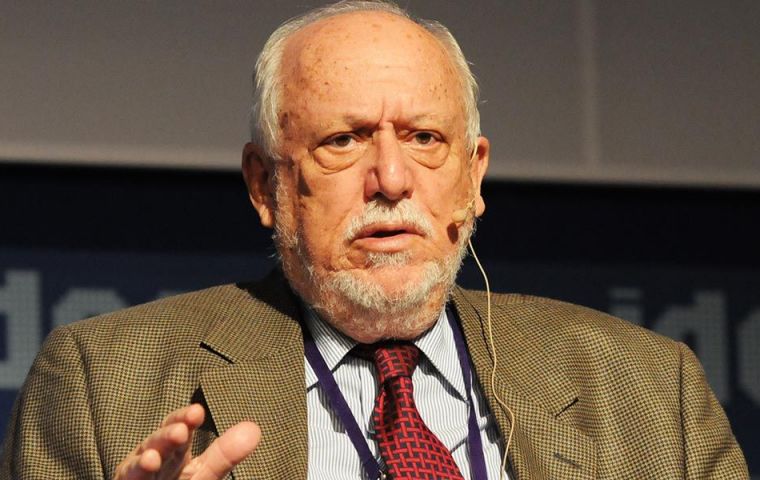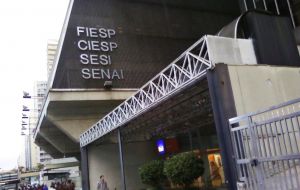MercoPress. South Atlantic News Agency
Brazil's model of 'national production' is over: a Mercosur open to the world a solution
 “Mercosur domestic market is not sufficient to support sustained economic growth in country members and to achieve that we need to export more” said Botafogo.
“Mercosur domestic market is not sufficient to support sustained economic growth in country members and to achieve that we need to export more” said Botafogo.  Fortunately the concept has taken root in the Brazilian private sector, even among the most conservative such as the Sao Paulo State Federation of Industries, Fiesp.
Fortunately the concept has taken root in the Brazilian private sector, even among the most conservative such as the Sao Paulo State Federation of Industries, Fiesp.  “Agriculture and auto industry protectionism in Brazil has become accustomed to the State's protection, but this protection has scared foreign investments”
“Agriculture and auto industry protectionism in Brazil has become accustomed to the State's protection, but this protection has scared foreign investments” Brazil exhausted its economic model, the domestic market is no longer enough and Brazilian protectionism hindered competitiveness and scared foreign investment, claimed retired Brazilian diplomat Jose Botafogo at the international symposium “The future of Mercosur” organized in Paraguay as part of the 25th anniversary celebration of the South American block.
Former ambassador, and a top negotiator of Itamaraty (Brazil's Foreign Ministry) and currently private sector advisor, Botafogo was one of several experts who participated in the symposium analyzing the quarter century of Mercosur founded in March 1991 by Argentina, Brazil, Paraguay and Uruguay.
Mercosur has been much criticized in recent years for having forgotten its original economic and trade objectives and privileged ideological issues.
“The block's domestic market is not sufficient to support sustained economic growth in country members and to achieve that we need to export more, to the outer zone, thus ensuring efficient growth”, said Botafogo.
He added that fortunately the concept has taken root in the Brazilian private sector, even among those most conservative and reticent such as the powerful Sao Paulo State Federation of Industries, Fiesp.
Botafogo described the current situation as a 'negative agenda' for Mercosur, because of the prevalence of domestic over external markets, and argued that this Brazilian production nationalism, step by step became an obstacle for productivity and competitiveness.
“Agriculture and auto industry protectionism in Brazil has become accustomed to the State's protection, but this protection was so strong that it scared foreign investments”.
Botafogo also mentioned peoples' frustration in Brazil with the much heralded integration, since they perceive no benefits from it.
The former ambassador said as a consequence development and growth in Brazil during the last fifteen years has been geared domestically, as a result of the protectionist policies, but in his opinion this policy is 'exhausted'.
“Subsidies or using the federal budget to select activities, ignores markets and production forces”.
Economist Ricardo Rodriguez Silvero, partner at a financial advisors firm in Paraguay, said that Mercosur members must concentrate all efforts in “reviving the corpse” of the block, although admitting that in the last quarter of a century, “we've much learnt from successes and failures”, but at the end of the day it's political, “where and how are we heading”.
“Nobody can cast the first stone” and “the market thou promised, you never delivered”, were the comments from Argentine former diplomat Félix Peña and who was also involved in the Mercosur founding discussions.
However in an optimistic vein Peña said that Mercosur must open to the world and expressed strong support for the current negotiations to reach a wide ranging trade deal with the European Union. He added that it was necessary to approach the Pacific Alliance (Chile, Peru, Colombia and Mexico) and begin trade talks with Japan, South Korea and China.




Top Comments
Disclaimer & comment rules-

Read all commentsI've been saying the same thing for years.
Apr 08th, 2016 - 10:56 am 0Commenting for this story is now closed.
If you have a Facebook account, become a fan and comment on our Facebook Page!